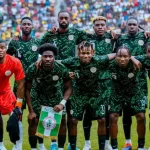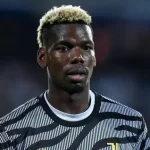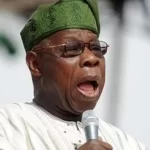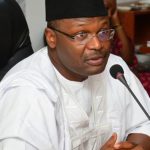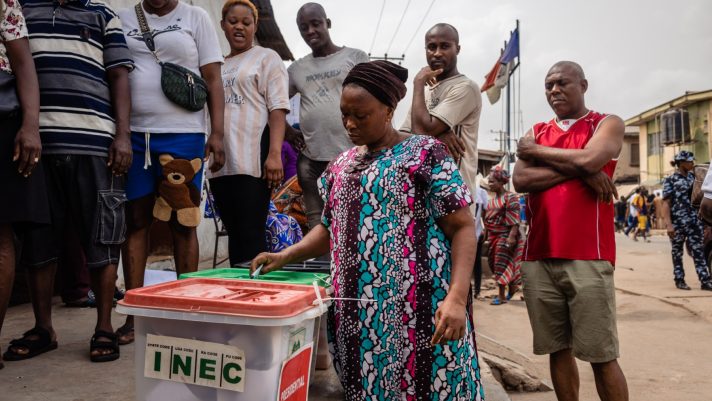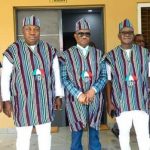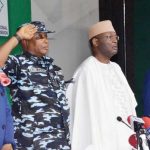By Seye Olumide (Southwest Bureau Chief), Adamu Abuh, Sodiq Omolaoye (Abuja) and Gbenga Salau (Lagos)
With the 2023 Presidential and National Assembly elections having recorded the lowest voters turnout in the history of balloting in Nigeria, stakeholders, leaders of political parties and indeed, candidates in the upcoming governorship polls, are exploring diverse measures to rally the electorate for improved participation next Saturday.
According to results of the February 25, 2023 elections, only 27 per cent of registered voters turned out to elect new leaders, a statistic analysts described as the lowest in history when compared with subsequent corresponding elections.
This was as some stakeholders, in trying to underline the cause of the voters’ apathy, given the enthusiasm shown by the electorate ahead of the election, highlighted voter suppression and violence, and the late arrival of voting materials as responsible.
Speaking with The Guardian, Programmes and Communications Manager, Resource Centre for Human Rights and Civic Education (CHRICED), Armsfree Ajanaku said voter suppression and violence deterred some voters from coming out during the presidential poll.
According to him, though not widespread when compared with the over 170,000 polling units, they were factors that led to low turnout of voters.
He added that the late arrival of materials also disenfranchised a lot of voters, saying, “we saw how voters were standing on the queue but they got frustrated at a point and left.”
Ajanaku also stressed the need for INEC to take a critical look at the voter register, adding that the commission should review the register by removing names of people who have died or relocated to somewhere else.
He added: “INEC needs to do a lot of confidence building because many citizens now have a perception that INEC did not fair so well during the presidential elections, especially in the area of logistics deployment, crisis communications and in the area of transparency of the process. INEC has lot of perception problems.
“The challenge is for INEC to be able to build confidence, especially now that the election has been postponed. One way INEC can do this is to ensure that materials arrive on time at the polling units and everything goes in line with how the process was programmed.
“On the other hand, I think this is a collective responsibility. Other stakeholders, like security agencies have roles to play. For instance, in Zamfara where the there are issues of insecurity, that will definitely affect the voter turnout. So security agencies need to work hard to protect the voters and the election officials.”
An election expert, Austin Aigbe, argued that the 2023 election never recorder a low voter turnout, adding that what happened on election day could be classified as voter suppression.
He said the delay in the arrival of election materials and violence that erupted in some polling units were orchestrated to disenfranchised voters.
“The technology deployed encouraged more people to come out to vote but INEC with its logistic challenge, which is now arguably the worst in history of elections, disenfranchised a lot of people.
Going forward, he said voters must be prepared to defend their votes on election day. “You cant come out on election on election day and somebody comes in at 2pm to destroy voting materials. People should vote and remain in the polling stations, which the law also permits. Like I always say, if you don’t vote, it won’t be counted. Also, Nigerians must remove their mind from IREV. Voters should upload their polling units online themselves,” he stated.
He urged INEC to be committed to its own commitment, saying a situation where the umpire assured that BVAS would play two functions but later played one function will no longer be acceptable to Nigerians.
But for a former National Commissioner of the Independent National Electoral Commission (INEC), Prof. Lai Olurode, while the voter turnout during last Saturday’s presidential election is the worst in the nation’s history, bad governance was responsible for the menace.
According to the professor of sociology, many Nigerians ventilated their frustration on the system by not coming out to vote.
He stated: “I will say this is about the worst in recent time. Imagine, the turnout is just less than 30 per cent. I think what this means is that the electorates are communicating to the state how unhappy they are, and how unpleasant the situation is. It is the human condition in the country. At all levels, not just the federal government, even at state and local council, governance has declined. Citizenship is at ground Zero. We now fight to access basic services from power to water supply.
“I pity the president-elect. The challenges and expectations are enormous. In fact I don’t see how those expectations can be met. I wish him well in recruiting that will work with him. Let them have the mind that there are going to serve not to serve themselves. I can see people already mounting pressure for post. This is about service.”
Olurode warned that until citizens begin to enjoy the dividends of democracy, the trend might continue.
But the Chairman, Transition Monitoring Group (TMG), Auwal Ibrahim Musa Rafsanjani, stressed that the need to increase voters’ turnout during the governorship and state Assemblies election is premised on the fact that the presidential and legislative election held on February 25, 2023 recorded an unprecedented low voter turnout across the country.
He noted that the turn out was against expectations as the Continuous Voter Registration (CVR) process reflected citizens desire to participate en masse in the 2023 general election.
“As observed during the election, many factors could have contributed to the low turnout of voters. These could include the suppression and intimidation of voters as observed in some parts of the country where huge voters turnout are usually recorded. Secondly, the poor logistic deployment by INEC also contributed to widespread disenfranchisement of citizens during the election. On the larger scale, the enthusiasm demonstrated by the Nigerian citizens pre-election was not reflected in the total vote cast.”
He observed that the outcome of the presidential election in itself has left a bitter taste in the mouth of many Nigerians, as processes to ensure transparency of the poll were not followed to the letter by INEC.
“Nigerians have questioned the ability of INEC to conduct a free, fair and credible election where votes will count. This has further dampened electorates’ mood toward the gubernatorial and houses of assembly election as the fear of further lower voter turnout looms in the country.
“With the postponement of the election by one week, opportunity now opens for electoral stakeholders to ramp up engagement toward mobilising citizens to turnout in large numbers to cast their votes. The March 18th election is a very critical one as it is about electing leaders in states where governance should be closer to the people.
“It is in line with this that the Transition Monitoring Group (TMG) has mobilised for nationwide sensitisation and awareness creation to reassure citizens to turn out and cast their votes. Now, these activities are already happening in some states of the country and expected to last until the week of the election. Civil society and other well-meaning Nigerians must not give up but continue to mobilize citizens to participate. The job has become even more harder than it was, but it is also an opportunity to up the tempo.
“In this week before the election, INEC also has a critical role to play. INEC must double up its education programme and use it to reassure citizens that the gubernatorial elections will be better conducted than the presidential election in terms of both logistic deployment and application of technology. Security agencies must also play their part in reassuring citizens that they will clamp down on voter suppression and intimidation, stamp out electoral violence and increase mobilization around polling units.”
More than ever, he maintained that the postponement presents an opportunity for collaboration among electoral stakeholders towards a better gubernatorial election, just as it presents an opportunity for INEC to properly conclude on efficient logistic arrangements while also addressing the loopholes from lessons learnt from the February 25th election.
On his part, President, Voters Awareness Initiative, Mr. Wale Ogunade, said that the postponement could be termed an extra-time in football but an overtime in politics and it gives all the political gladiators the opportunity to re-arrange, redo, amend and reconfigure their activities.
gladiators the opportunity to re-arrange, redo, amend and reconfigure their activities.
“It is also a time to put their house in order but unfortunately, it can be a negative. This is because the whole Internet now is bursting though it does not naturally translate into the number of voters. We, in the Voters Awareness Initiative, are disappointed with the low voters turnout, despite all the activities and sacrifices made to improve voter education.
“The turn out is abysmally poor, but this one week will give the opportunity to mobilise and encourage voters and let them know that indeed ultimate power resides with them,”Ogunade said.
Meanwhile, stakeholders in Oyo and Ogun states and the Peoples Democratic Party (PDP) across political divides yesterday intimated hinted of impending House-to-house and Door-to-door campaigns and sensitisation of the electorate to turn out enmasse next weekend for the gubernatorial and State Assembly elections.
For instance in Ogun State, in spite of the fact that the ruling All Progressives Congress (APC) had a successful outing during the presidential and National Assembly elections on February 25, the party is not leaving any stone unturned in mobilising its supporters to vote for the incumbent governor, Dapo Abiodun and all its State Assembly candidates.
A party source said this decision is premised on the fact that the major opposition PDP has concluded arrangements to form an alliance with Labour Party, Accord and some disgruntled members of the ruling APC.
The source, however, expressed confidence that in spite of what he described as the planned ‘Unholy Alliance,’ APC will still have the upper hand.
But State Chairman of Ogun PDP, Sikirulai Ogunlade expressed confidence that voters participation in the coming gubernatorial polls will be more than the previous ones, saying, “Gubernatorial and State Assembly polls are closer to the people in the state than presidential and National Assembly elections. We have sensitised the electorate and we shall embark on more serious campaigns between now and Thursday.”
He also disclosed that not less than 10 political parties, which include LP, Accord are already in discusiion to close ranks to confront the ruling APC.
Ogunlade dismissed the fear of voter apathy on Saturday. He said candidates of Ogun PDP, especially Ladi Adebutu, are sure of victory.”
In Oyo State, the PDP and major opposition APC are also working relentlessly to mobilise their supporters to participate in the coming polls. Both parties have embarked on a serious House-to-house and door-to-door engagement with voters.
Spokesman of PDP in the State, Akeem Olatunji said he was sure that more voters would participate in the gubernatorial election, especially because of their willingness to re-elect Governor Seyi Makinde.
Meanwhile, a member of the Oyo APC campaign council, Kehinde Olaosebikan, said right from yesterday evening, APC has been knocking on doors of their supporters to encourage them to troop out on Saturday.
The Guardian further gathered that some critical stakeholders in Oyo across political parties have switched their loyalty to Senator Teslim Folarin with concrete agreement to mobilise grassroots people for support.
In Lagos, the outcome of the presidential and National Assembly polls, in which the ruling APC in the state lost to Labour Party has instigated the ruling party to double its campaign efforts while the Labour Party gubernatorial candidate, Gbadebo Rhodes-Vivour is also not resting on his oars.
IN similar vein, ahead of Saturday poll, the entire members of the national working committee (NWC) of the ruling All progressives Congress (APC) have relocated to their respective states.
The Guardian observed that the national secretariat of the party situated along Blantyre street in Wuse 2, Abuja is now a shadow of its former self as the usual human and vehicular traffic were nowhere to be seen.
A staff of the secretariat, who pleaded anonymity, explained that the development is not unusual in view of the need to mobilise supporters to vote for the party.
“Our party officials have all traveled even before the postponement of the election. I am not sure they would come back on Monday again before the election,” he said.
When contacted, APC’s national publicity secretary, Barr Felix Morka, in a chat with The Guardian yesterday in Abuja confirmed the development, adding that the party is not leaving any stone unturned in rallying supporters to come out enmasse to cast their votes for its candidates across the country.
Said he: “The party and it’s processes and it’s chapters across the country are actively encouraging our members and voters to turn out in the next state elections. We are taking that seriously and we are working hard to call out people to vote during the governorship and states assemblies elections.”
APC’s former national vice chairman, South -South, Prince Hilliard Eta also disclosed that he is in touch with party officials in his home state of Cross River to achieve the goal.
Source: The Guardian

